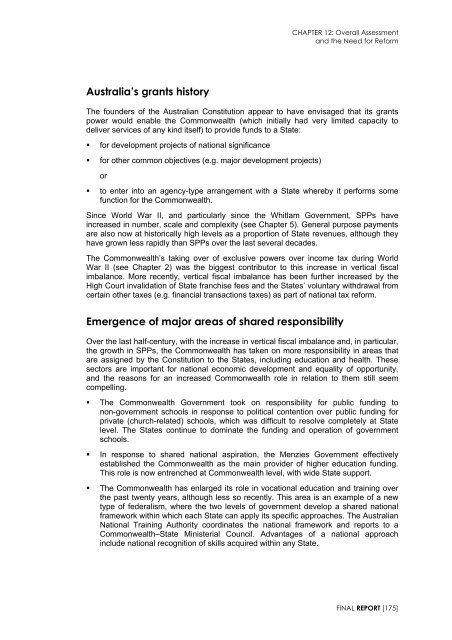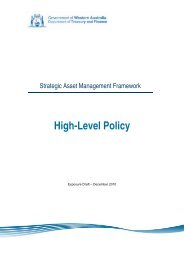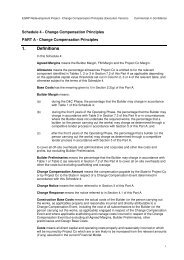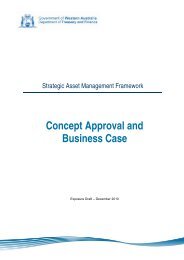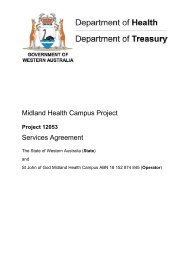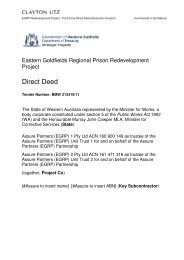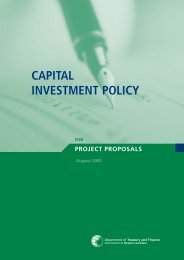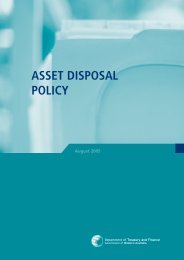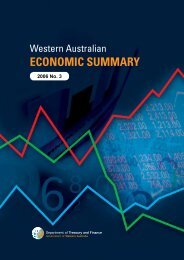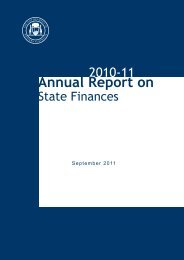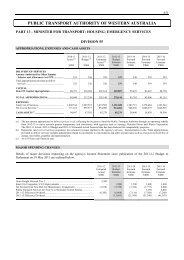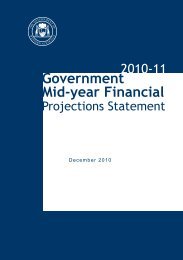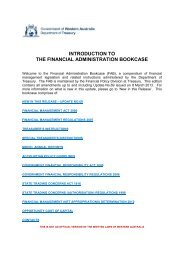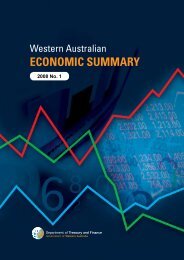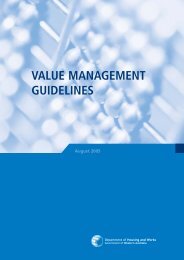Garnaut Fitzgerald Review of Commonwealth-State Funding
Garnaut Fitzgerald Review of Commonwealth-State Funding
Garnaut Fitzgerald Review of Commonwealth-State Funding
You also want an ePaper? Increase the reach of your titles
YUMPU automatically turns print PDFs into web optimized ePapers that Google loves.
CHAPTER 12: Overall Assessment<br />
and the Need for Reform<br />
Australia’s grants history<br />
The founders <strong>of</strong> the Australian Constitution appear to have envisaged that its grants<br />
power would enable the <strong>Commonwealth</strong> (which initially had very limited capacity to<br />
deliver services <strong>of</strong> any kind itself) to provide funds to a <strong>State</strong>:<br />
• for development projects <strong>of</strong> national significance<br />
• for other common objectives (e.g. major development projects)<br />
or<br />
• to enter into an agency-type arrangement with a <strong>State</strong> whereby it performs some<br />
function for the <strong>Commonwealth</strong>.<br />
Since World War II, and particularly since the Whitlam Government, SPPs have<br />
increased in number, scale and complexity (see Chapter 5). General purpose payments<br />
are also now at historically high levels as a proportion <strong>of</strong> <strong>State</strong> revenues, although they<br />
have grown less rapidly than SPPs over the last several decades.<br />
The <strong>Commonwealth</strong>’s taking over <strong>of</strong> exclusive powers over income tax during World<br />
War II (see Chapter 2) was the biggest contributor to this increase in vertical fiscal<br />
imbalance. More recently, vertical fiscal imbalance has been further increased by the<br />
High Court invalidation <strong>of</strong> <strong>State</strong> franchise fees and the <strong>State</strong>s’ voluntary withdrawal from<br />
certain other taxes (e.g. financial transactions taxes) as part <strong>of</strong> national tax reform.<br />
Emergence <strong>of</strong> major areas <strong>of</strong> shared responsibility<br />
Over the last half-century, with the increase in vertical fiscal imbalance and, in particular,<br />
the growth in SPPs, the <strong>Commonwealth</strong> has taken on more responsibility in areas that<br />
are assigned by the Constitution to the <strong>State</strong>s, including education and health. These<br />
sectors are important for national economic development and equality <strong>of</strong> opportunity,<br />
and the reasons for an increased <strong>Commonwealth</strong> role in relation to them still seem<br />
compelling.<br />
• The <strong>Commonwealth</strong> Government took on responsibility for public funding to<br />
non-government schools in response to political contention over public funding for<br />
private (church-related) schools, which was difficult to resolve completely at <strong>State</strong><br />
level. The <strong>State</strong>s continue to dominate the funding and operation <strong>of</strong> government<br />
schools.<br />
• In response to shared national aspiration, the Menzies Government effectively<br />
established the <strong>Commonwealth</strong> as the main provider <strong>of</strong> higher education funding.<br />
This role is now entrenched at <strong>Commonwealth</strong> level, with wide <strong>State</strong> support.<br />
• The <strong>Commonwealth</strong> has enlarged its role in vocational education and training over<br />
the past twenty years, although less so recently. This area is an example <strong>of</strong> a new<br />
type <strong>of</strong> federalism, where the two levels <strong>of</strong> government develop a shared national<br />
framework within which each <strong>State</strong> can apply its specific approaches. The Australian<br />
National Training Authority coordinates the national framework and reports to a<br />
<strong>Commonwealth</strong>–<strong>State</strong> Ministerial Council. Advantages <strong>of</strong> a national approach<br />
include national recognition <strong>of</strong> skills acquired within any <strong>State</strong>.<br />
FINAL REPORT [175]


